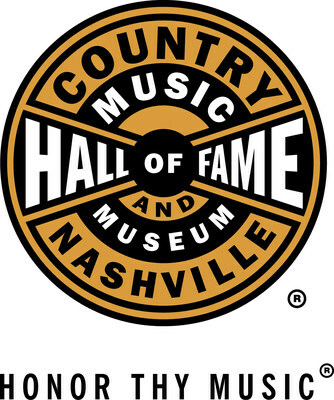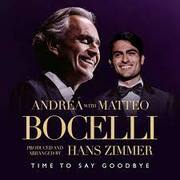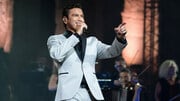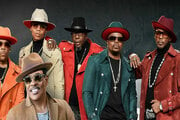NASHVILLE, TN (Top40 Charts) The Country
Music Hall of Fame and Museum will explore the significance of Nashville's pioneering R&B scene and its important role in the city becoming a world-renowned music center with its latest exhibition. Night
Train to Nashville:
Music City Rhythm & Blues Revisited is a 20th anniversary edition of the museum's award-winning original exhibit, which was featured in its galleries March 2004 through December 2005. The exhibit will include many of the same items and themes, as well as recently discovered artifacts and photographs. The exhibit, which is included with museum admission, opens Friday, April 26, and runs through
September 2025.
Night
Train to Nashville:
Music City Rhythm & Blues Revisited explores Nashville's R&B activity in the decades following World War II, spanning 1945-1970. As Nashville's country music industry was just getting started, the city was also a hotbed for R&B, with celebrated performers contributing to the community's rich musical heritage, including Country
Music Hall of Fame member Ray Charles, Hank Crawford,
Bobby Hebb, Jimi Hendrix,
Etta James and
Little Richard, among many others. During this time, R&B reigned alongside country music in the city's clubs and studios, on radio and on nationally syndicated television.
The exhibit is supported by a free-to-access Night
Train to Nashville online exhibit, which launched last year and was made possible by a major grant awarded from the
National Endowment for the Humanities (NEH). The exhibit is also supplemented by a newly published companion book and an opening weekend program examining the influential television show "Night Train."
"This exhibit and its related resources offer opportunities to revisit Nashville's often overlooked R&B legacy and its important role in our community becoming 'Music City,'" said Kyle Young, CEO of the Country
Music Hall of Fame and Museum. "As Nashville developed into a major recording center, it did so against a background of urban change and at a time when racial barriers were tested and sometimes broken on bandstands, inside recording studios and on the airwaves."
The exhibit will explore:
The ways that iconic musicians including
Little Richard and
Jimi Hendrix honed their skills on Nashville bandstands.
How Nashville led the way in broadcasting groundbreaking and influential R&B on the 50,000-watt powerhouse WLAC radio station and through syndicated TV shows such as "
Night Train" and "The!!!!Beat."
The musical collaborations of R&B and country musicians.
The recording of Etta James's scorching live album
Etta James Rocks the House at Nashville's New Era Club.
Key developments of the late 1960s, from the soaring height of Robert Knight's R&B-pop crossover hit "
Everlasting Love" (recorded in Nashville), to the depths of so-called "urban renewal" and the routing of Interstate 40 through Jefferson Street, which eventually devastated the city's vibrant R&B nightlife.
Some artifacts to be displayed include:
Gibson ES-345 electric guitar and Lab Series L7 amplifier used by Johnny Jones in the later part of his career. Nashville's premier blues guitarist, Jones performed in the house band on "
Night Train" and "The!!!!Beat" and influenced
Jimi Hendrix in the early 1960s.
Letter sent by blues singer Bessie Smith to Hatch Show Print in 1927, accompanied by a photograph to use for designing her posters.
Etta James-signed cover of
Etta James Rocks the House, recorded in
September 1963 at Nashville's New Era Club.
Three-piece suit worn onstage by vocalist and bandleader Jimmy Church. A Nashville native who recorded with an R&B group while still in high school, Church was regularly featured on television shows "
Night Train" and "The!!!!Beat."
Spoons used by
Bobby Hebb as percussion instruments and Hebb's Gibson JS-200 guitar. Hebb, a Nashville native, wrote and recorded the million-selling crossover hit "Sunny," and performed on the Grand Ole Opry in the early 1950s as a member of Country
Music Hall of Fame member Roy Acuff's band.
Hand-painted bandstand used by star saxophonist and bandleader Hank Crawford in the 1960s.
Several original Hatch Show Print posters from the 1950s and 1960s advertising appearances by Gene Allison, Earl Gaines,
Little Willie John, Jackie Shane, Joe Tex and others.
A scrapbook of vintage photographs belonging to Nashville entertainer Frank Howard.
In support of the exhibit, the museum is publishing a companion book, "Night
Train to Nashville:
Music City Rhythm & Blues Revisited." The book includes a foreword by Nashville entertainer Frank
Howard and explores the themes and stories in the exhibit. It also features more than 100 photographs and descriptions of classic R&B records cut in Nashville.
The book is now available to preorder on the museum's website and will be available April 26 to purchase in the museum's store or on its website. The book will also be available in bookstores nationwide through a distribution partnership with the University of Illinois Press.
The free-to-access online exhibit, Night
Train to Nashville:
Music City Rhythm & Blues, 1945-1970, revisits, updates and preserves the museum's original physical exhibit of the same name, which was featured in the museum's galleries 20 years ago.
The multimedia exhibit showcases a vast array of historic photos, performance videos and audio recordings, as well as instruments, show posters, stage wear and other rare items featured in the original exhibit. Online visitors can also access a full video archive of public programs hosted by the museum in relation to the original Night
Train to Nashville exhibit and Nashville's R&B history, including concerts, panel discussions and more.
To mark the opening of the exhibit, the museum will host a panel discussion on Saturday, April 27, about Nashville's groundbreaking television series "Night Train." Participants will include performers Jimmy Church and Frank Howard, who appeared regularly on the show, along with Katie Blackwell (wife of late "
Night Train" creator and host, Noble Blackwell) and Tracye Blackwell (daughter of Katie and Noble Blackwell). The discussion will be illustrated with video clips from "Night Train." The program will happen at 2:30 p.m. in the museum's Ford Theater.
Night
Train to Nashville:
Music City Rhythm & Blues Revisited will also be supported by additional public programs during the exhibit's run, presented in collaboration with other nonprofit partners.
The original Night
Train to Nashville exhibit earned the museum a Bridging the Gap Award (2006) from the Nashville chapter of the NAACP for the promotion of interracial understanding. The exhibit's companion album of the same name received a Grammy award for Best Historical Album (2004). Throughout the exhibit's run, the museum produced a pair of retrospective compilation albums, published three books, and hosted dozens of panel discussions and concerts in support of the exhibit.
























